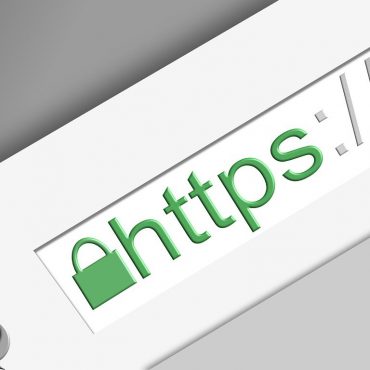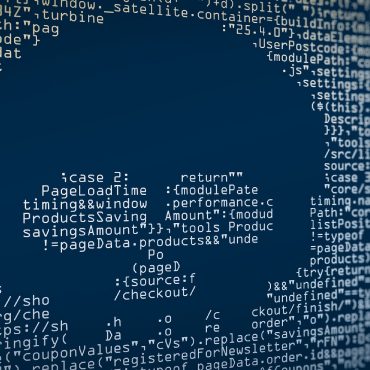What Is Malware?
Malware, or malicious software, is computer software designed with the express purpose to harm, compromise, or destroy computer systems, devices, and networks. It often works in collaboration with other malware to perform a variety of malicious activities. Common types of malware include viruses, spyware, worms, Trojan horses, and malware that come from a Trojan. It can also come from security or credit card fraud or from hacker attacks. You can check website for malware by using spyware removal tool.

There are many ways in which malware may infect a computer. It may be hidden as a piece of code that is installed as a part of an executable file, it may be hidden as part of a program to download or it may be bundled into freeware or shareware programs. It may also be spread through email attachments, chat rooms, online gaming platforms, and from a compromised PC to another person’s machine. Some malware only infects a single computer, while other types spread throughout the network and can be controlled by isolating infected systems and deleting or removing any files from the system.
Types of Malware!
One type of malware is known as Trojan viruses, which are generally sent through emails. Other common types of malware are backdoor viruses, worms, spyware, and adware. A worm can be programmed by an attacker to search for vulnerable software on the victim’s computer and then install it. Worms are not really malware but are designed to destroy or steal data. Some types of malware are able to do more than just steal information.
Malware types can also be determined by looking at the types of antivirus software that a computer has. Many antivirus programs are updated regularly, but if there is new malware that has been released, it will not be detected. If you are not sure what kind of malware is infecting your computer, you can run a search for your particular computer on your Internet browser. For example, if you were searching for “helpdesk Skype”, you would type in the name of the program. If you see a number associated with malware, your computer may be infected with some form of malware.

Most malware are meant to be malicious software that spreads rapidly through networks and can harm your computer, regardless of its size. Once a virus spreads, it usually spreads quickly. It often sends out spam to notify people on your behalf that harmful files are present on their computers. In most cases, the virus spreads through network activity. Common methods of spreading viruses include using chat rooms, downloading files through peer-to-peer file transfers, opening up email attachments that you think are safe, opening up unknown email attachments that you think are harmless, accepting unknown websites that claim to be OK, installing unknown plug-ins, installing Trojans and other malicious software, stealing personal information, and broadcasting fraudulent email messages that can spread quickly to your entire network. They can slow down your website too by ddos attacks you can also avail unlimited ddos mitigation to guard your website against those attacks.
Malware can corrupt files on your computer or allow other users on your network to have full access to your system. Once the malware has infected your PC, it prevents the user from accessing their files and folders, as well as everything else on their machine. This makes the PC useless until you take steps to remove the offending virus. Fortunately, there are several ways to remove malware, ranging from the easy to the more difficult task of removing the actual virus.
How Malware Can Harm Your Website!
If you have a website, it is very likely that you will run into some form of malware at one time or another. Malware has become very prevalent over the past ten years and it can really have a negative effect on your website. One thing that people do not realize about spywares is just how widespread it really is. Almost every type of computer is prone to having some form of malware on it.
In computer lingo, malware is defined as any type of program or software that is used to harm another program or even your system. There are two main types of malware. There are viruses that send out a lot of junk emails and pop-up ads while there are spyware programs that are used to track your personal information. Malware is classified by the level of damage that it causes. There are programs that will just mess things up on your system, while other programs will actually do real damage. Here is a quick look at the two main types of malware that you may run into on your PC:
Viruses are nothing more than software bugs that are programmed to cause havoc on your computer system without your knowledge. The most common type of virus is the Trojan horse. This is not so much harmful in and of itself, but if you download an infected file from the Internet, it will remain on your system until you manually delete it. This can cause a lot of problems for your computer such as slower speed and computer freezes.

Malicious objects are different in that they are programmed to specifically harm your system. The most common malicious object is a virus. Other malicious objects include Trojans, worms, and spyware. These malicious objects are programmed to do things like system corruption, data corruption, and data theft. They also may show up as pop up advertisements, lock your screen, and prevent you from surfing the Internet. If you feel that your system is running slower than normal, or your web pages are having a lot of errors, then it is probably a case of malicious objects infecting your system.
When learning how malware harms your website, you have to learn about what type of malware is attacking your system. Some of the more commonly known malicious objects are viruses, worms, Trojan horses, and spyware. These are all very common types of malware that many people don’t even think about installing on their system but are very harmful and should be taken care of immediately. If you do find yourself dealing with one of these malware infections, then there are certain steps that you can take to clean your system and get rid of the offending program or files.
Learning how malware harms your website is very important because not taking steps to clean it up can lead to some very serious consequences for your website and overall system. Don’t ignore the presence of malware on your computer. Immediately scan your system using a reliable web browser and if malware is found, clean up the program or files immediately by using hack protection‘s spyware removal services.
How to Remove Malware from Websites!
Hackers have become quite adept at stealing information from websites and then using that information for their own purposes. From phishing to leaking information they have learned exactly how to attack and protect themselves from it. In this day and age, you need a website hacking protection solution in order to secure your website and keep your system protected. So how do you choose the right one?
The best way to remove vulnerabilities is to use an anti-malware program. There are many free programs out there that you can scan your system with and remove malware or other harmful items. But there are many other programs that will actually block legitimate software from installing on your system. You want to avoid these by using a program that offers real-time protection like malware protection by hack protection.
Hackers love software that allows them to enter a victim’s personal information. They will use this information to drain your bank account, obtain new credit cards, and use other scams. You want a program that works as quickly as possible once malware has infiltrated your system. It also needs to be able to perform real-time protection. That means that if your website gets hacked, you want to be able to remove the malware before it spreads. Most of the top anti-malware programs will offer this kind of service.

When you scan your computer with hack protection’s adware and malware removal program, you need to look for certain things. First, you want to look for a program that detects threats that reside in the “front end” of your system – meaning the part that your computer visitors see when they visit your website. This means any malicious scripts that are attempting to install. It also means spyware, which hides inside your operating system and performs different activities on your computer without your knowledge. Sometimes they slow down your website by launching ddos attacks and with hack protection, you got all the solutions!
Hack protection’s spyware removal programs also offer protection against “backdoor” infections. This means that a hacker can put additional malware into your website by inserting hidden codes into it. This is very common for websites that sell downloadable files. Back door infections can’t be detected by regular anti-spyware programs, so you need a dedicated tool to remove them.
Some are really difficult to remove. The biggest threat of all is probably spyware because it is almost impossible to detect and fix. If you have some sort of personal information including credit card numbers, social security numbers, and bank account information, you need to be very careful when shopping online. While many legitimate websites are secure, there are many others that aren’t. Just follow our hack protection malware removal service to remove vulnerabilities from websites to ensure that you and your personal information stay safe. Apart from protections, if you wanna learn about interesting dumbest attack scenarios by hackers, that our experts have collected from some sources included (Wikipedia), then check this out: Top 5 dumbest attacks of all time!!!














Post comments (0)